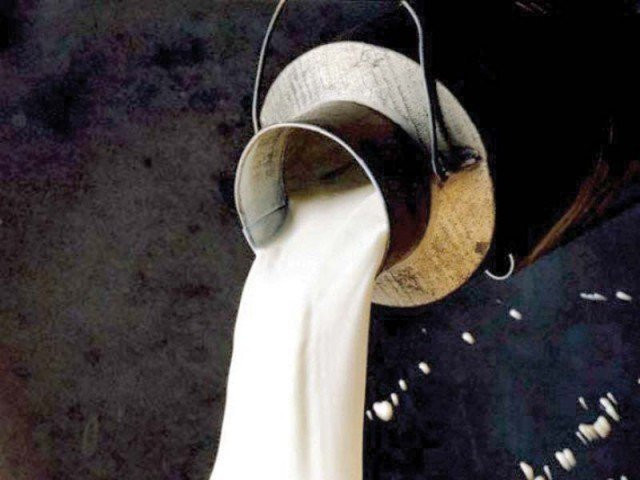Contaminated milk
Pakistan consumes a lot of milk, much of it delivered to the door unpasteurised

Pakistan consumes a lot of milk, much of it delivered to the door unpasteurised. PHOTO: FILE
Untreated milk can be home to a range of unpleasantness, and if untreated has a short shelf life in its raw state. The dairy product manufacturers want to maximise the life of their products and thus heat milk to over 135 degrees Celsius to kill off harmful bacteria. Pasteurisation is a different process, heats the milk to a lower temperature and is designed to preserve those micro-organisms that are good for humans. Of the pasteurised brands tested only one was found fit for human consumption, whereas of the UHT brands tested only one was unfit, found to contain formalin and cane sugar. Contaminated foodstuffs are widely sold, and tests of 111 brands of bottled water in April 2016 discovered a range of toxins including sewage, sodium, potassium and arsenic. Out of the sample only 10 were fit for human consumption. As with water, so with milk. There is an increasing demand for ‘safe’ packaged food products and an increasing expectation that what is bought off-the-shelf in promoted packages lives up to the hype of the advertising agency. Reports such as that produced by PCSIR are a waste of effort if they are not acted upon. Sub-standard products must be withdrawn from sale immediately. The manufacturers must be prosecuted and the factories monitored by a health and safety inspectorate that does more than simply rubber-stamp. Worthless paper exercises serve no one well — clean up the milk industry.
Published in The Express Tribune, February 2nd, 2017.
Like Opinion & Editorial on Facebook, follow @ETOpEd on Twitter to receive all updates on all our daily pieces.














COMMENTS
Comments are moderated and generally will be posted if they are on-topic and not abusive.
For more information, please see our Comments FAQ